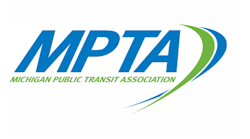Transportation Riders United (TRU) and the Michigan Public Transit Association (MPTA) are encouraging the state of Michigan to invest more in public transit.
TRU
TRU released its first annual state of transit report on Jan. 27, 2025. The report seeks to shine a spotlight on the importance, strengths, challenges and improvements needed for the Detroit region’s public transit system.
The state of transit varies across the region
According to TRU, the state of transit in metro Detroit in 2024 was adequate for some users, providing millions of essential rides. However, for others, transit was nearly non-existent, despite every community having transit needs. Overall, according to the report, metro Detroit transit continues to fall far short of the robust, reliable, convenient system that the region needs to expand opportunities, save people money and to boost the region’s attractiveness and prosperity.
TRU notes that transit across metro Detroit has been severely underfunded for decades, with the region investing a fraction of what other regions invest. During the COVID-19 pandemic, the Suburban Mobility Authority for Regional Transportation (SMART) and the Detroit Department of Transportation (DDOT) drastically cut back service to deal with decreased staffing and modified demand. In July 2023, TRU released a report, SOS: Save Our Service, which urged better pay for drivers to help their ranks and end the epidemic of no-show buses.
Gradual progress in restoring bus reliability
TRU says that since the release of the report, both agencies have made significant efforts to attract more workers and to modify their service to address changes in travel patterns. Over the course of 2024, SMART and DDOT made gradual improvements to reliability, and DDOT phased in a series of service improvements, resulting in a significant growth in ridership.
According to TRU, other transportation systems in the region demonstrated that when service is introduced or improved, more people will ride. Ann Arbor’s TheRide has expanded bus service beyond pre-pandemic levels and in response, more people are riding. Thanks to the 2022 Oakland County, Mich., transit ballot vote, rural transit providers like the North Oakland Transportation Authority and Western Oakland Transportation Authority also boosted service and are now serving record numbers of riders. Ridership on the Regional Transit Authority’s D2A2 service between Detroit and Ann Arbor has also been growing steadily.
TRU says the task for DDOT and SMART in 2025 is to continue progress towards timely, reliable service and to get more buses on the road to provide the frequent service that makes transit a more convenient option.
MPTA
According to MPTA, in Michigan, groups representing the state’s local bus systems are calling on Gov. Gretchen Whitmer and the Legislature to address a local bus funding crisis, particularly as talks continue on a potential transportation funding compromise.
“The current funding process has destabilized transit agencies and threatens essential riders,” said MPTA Executive Director John Dulmes. “It is critical that the upcoming budget process reverse the stark decline in the state’s support for local bus operating, or LBO.”
“The current funding situation is unsustainable and is reaching a dire point for transit services,” said Michigan Association for Transportation Systems President Ken Jimkoski. “Legislators must make sure that any road funding package includes a share for local public transportation, following the longstanding formula."
The group estimates that fully funded bus support would require about $200 million annually in additional funding, which could come from apportioning an increased amount of auto-related sales tax or from a share of any new transportation revenue.

Brandon Lewis | Associate Editor
Brandon Lewis is a recent graduate of Kent State University with a bachelor’s degree in journalism. Lewis is a former freelance editorial assistant at Vehicle Service Pros in Endeavor Business Media’s Vehicle Repair Group. Lewis brings his knowledge of web managing, copyediting and SEO practices to Mass Transit Magazine as an associate editor. He is also a co-host of the Infrastructure Technology Podcast.


